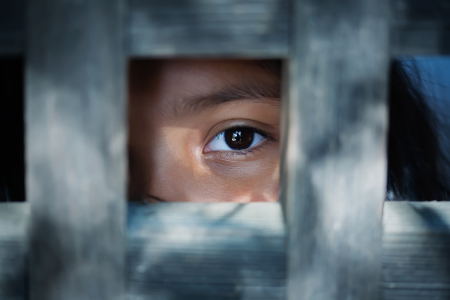Donors may unknowingly be providing support to trafficking, exploitation of children: study

Donors who believe they're helping orphaned children in foreign countries may unknowingly be contributing to a trafficking scheme that consists of deceiving families and exploiting children for labor or sexual purposes, according to a recent study.
Rebecca Nhep, the senior technical advisor at Better Care Network, an international network of organizations focused on finding solutions for children globally who lack familial care, published the study "The Role of Clientelism in Facilitating Orphanage Trafficking" last month in the Journal of Human Trafficking.
The study highlights the role patron-client relationships play in the "recruitment, transfer, exploitation, and concealment of child exploitation within unregulated residential care facilities."
The research centers around unregulated residential care facilities, particularly in Cambodia and Myanmar. Orphanage trafficking is a form of child trafficking that typically involves transferring a child to a residential facility to exploit them sexually or use them for profit, Nhep stated.
Those who participate in orphanage trafficking usually lie about the child's orphan status by falsifying various documents, including birth certificates, parental death certificates and abandonment certificates. The lie about the child's orphan status is meant to fulfill the necessary criteria for admitting them into residential care or attract funds from donors looking to sponsor a child in need.
In a statement provided to The Christian Post, a spokesperson for Nhep asserted that the issue is particularly relevant for people of faith.
Research suggests that Christians in the United States are major supporters of orphanages, as they donate $2.5 billion annually to residential care.
"There are countless ways for Christians to help end orphanage trafficking and support vulnerable children," Nhep told CP in a statement. "We must start by becoming informed donors and volunteers and directing our support to community-based services for families."
With many victims of orphanage trafficking being born into impoverished families that need support, Nhep stated that parents are often "deceived with promises of support and education into handing their children over to orphanages set up to exploit children."
"The more well-meaning international donors and volunteers give their time and resources to orphanages, the more motivation unscrupulous orphanage operators have to recruit children from vulnerable families," she stressed. "Instead, our resources can go toward community-strengthening services that help to keep families together."
The study suggests that potential donors are deceived as well, with children sometimes being required to lie and share false stories to raise money.
"Additionally, patron-client relationships were utilized to secure children's cooperation in their portrayal as orphans for the benefit of donors, voluntourists, and visitors, perpetuating the false narratives of orphanhood presented in donor communications," the study reads."
According to the study, clientelism refers to "enduring, dyadic, asymmetrical relationships established between patrons and clients to facilitate mutually beneficial exchanges." Research conducted for the study included semi-structured interviews with 14 qualified social workers from Cambodia and 10 from Myanmar. The 24 social workers interviewed for the study consisted of people who, at present or in the past, supported the "transition or closure" of multiple residential care facilities.
Participants in the study noted that directors of residential care facilities often relied on their clientelist networks to target children from lower-middle-class families. These types of clientelist relationships can be formed in various ways, such as directors offering monetary assistance in exchange for a parent admitting their child to a residential care facility.
"Numerous instances were cited in which clientelism was manipulated to facilitate sexual exploitation of children in RCFs. In every case that involved sexual exploitation, directors were identified as perpetrators engaged in either sexual offenses or the procurement of children for child sexual exploitation," the study stated.
"Clientelist relationships were employed by directors to target and groom children and their families, at times serving as a precursor to the establishment of RCFs expressly set up to facilitate sexual exploitation."
The study recommends raising awareness among families about orphanage trafficking and ensuring child protection social workers are educated on the risks of clientelism in residential care facilities, among other suggestions.
Samantha Kamman is a reporter for The Christian Post. She can be reached at: [email protected]. Follow her on Twitter: @Samantha_Kamman





















